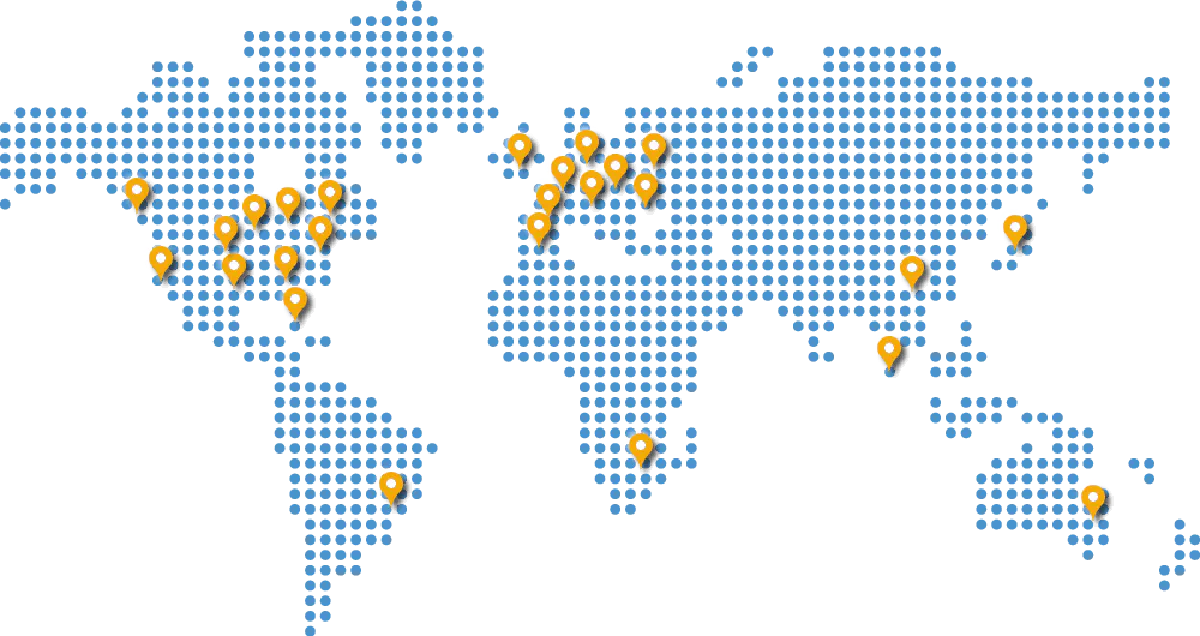What Is Geo-Blocking and How to Bypass It? | Scrape.do
Geographical boundaries are almost meaningless when you are living in the worldwide digital world of today, which is one of the biggest advantages of living in this age. Travelers may make use of all of the material accessible in their home country (or any other nation for that matter) via the use of any of the smart gadgets they have access to. Unfortunately, content providers and certain governments are attempting to restrict access to select websites and services by using geo-blocking measures. You may simply get around them by using a few easy applications and approaches. Using Scrape.do’s proxy services is one of them!
What Is Geo-blocking and How Does It Work?
User geo-blocking refers to the practice of denying access to a product or service to users who reside in certain countries. It is possible to geo-block a product by whitelisting the territories that have been authorized access, or, in more sensitive instances, by blacklisting particular nations from ever trying to access it.
It doesn’t matter what method of restriction is used; geo-restricted material might have the same effect as forbidden fruit. So much so that individuals came up with a variety of strategies to get around it. Some service providers have even gone so far as to prohibit users who even try to evade geo-restriction regulations.
The most surefire option would be to physically relocate to one of the locations in which the service is offered, which would be the most expensive. However, since that is no longer an option, we will move our attention to another approach a.k.a using a proxy that may be done from the comfort of your own home.
Reasons for Geo-Blocking
Websites gather a great deal of information about you the instant you arrive on their page, mostly via the use of web cookies and your Internet Protocol address. If you’ve already searched for the same flights, event tickets, or car rental alternatives via a certain online shop, boosting the price (especially for you) the second time may cause you to worry and pay the higher amount right away.
Depending on your nation of origin or postcode, they could assume you’re prepared to spend a little extra money for your goods. The purchasing patterns and interests of your projected age group may also help websites change pricing or conceal cheaper items, such as advertising only up-market hotel choices – which has the extra disadvantage of making a region or city seem more booked-out than it really is. This is known as dynamic pricing. It is a prevalent way of web marketing and a commonly used reason for geo-blocking other than governmental restrictions.
The second most-often reason for geo-blocking is licensing or copyright protection. Online service must possess the distribution rights to a specific piece of content in your location in order to lawfully distribute it in that particular market. It’s typical for a streaming service to have distribution rights to a program in certain areas but not others, as is the case with many television series. Similarly, YouTube videos fall under this category. Consider the possibility that you may come upon a video clip from a movie that is geo-blocked in your country. In most cases, this is because the content uploader, who is often a film distribution firm, does not have permission to release the movie or its excerpts in your country.
Another motivation for geo-blocking is to divide the world’s marketplaces into various segments. Streaming services will customize their offerings to meet the needs of certain market segments, which may include various price structures, languages, and preferred content. It’s also the reason why certain services aren’t accessible in specific regions or nations. A good example is the fact that several European nations have local streaming services that are not accessible in Asia.
What Is the Procedure for Geo-Blocking?
Geo-blocking is accomplished by tracing your Internet Protocol (IP) address. Your IP address is similar to your physical home address in that it discloses your location.
The procedure is as follows:
IP addresses are assigned to your laptop, phone, and any other device that connects to the internet, and these addresses are given by your internet service provider. As a result, your Internet service provider knows where you are, what devices you are using, and what you are doing online.
With specialized software, it is possible to monitor your internet activities with simplicity and track which websites are visited and at what times of the day you visit them. To a certain extent, the position of your gadget may be determined. In this way, a website may determine from what nation you are viewing it.
The information is then used by website administrators to implement geo-blocking measures.
Proxies and Geo-Blocking
If you’re interested in learning more about how to circumvent geo-blocking without losing performance, then you should pay attention to proxy servers.
A proxy server is a server that requests the internet resource you want on your behalf or your computer device. You may use the IP address of this intermediary to access websites that are prohibited in your location.
Proxies and virtual private networks (VPNs) function in the same manner, with the exception that the former does not scramble traffic data. This means that rerouting your data streams across proxy servers does not need any encryption. However, as a result of this, you will be able to surf the internet considerably more quickly.
If you have never used a proxy service before, don’t simply go with the first one you come across. When it comes to protecting your privacy, you should be picky about your choices. You won’t go wrong with any of the well-known names, on the other hand.
How Do Proxies Function?
You may use the IP address of the country whose content you want to view while sitting in any part of the globe, thanks to the international proxy servers provided by trusted proxies. As a result, you will be able to read the unlocked material on the web and avoid losing out on essential information that may be beneficial to you in your business venture.
The fast and secure proxy server also guarantees that you get correct search results, which will aid you in finding the information you want. When it comes down to it, a proxy server is essentially a computer program that serves as a middleman between clients and the other servers that provide the services they need. When a client asks for a service such as a file that is only accessible on a separate server, the client connects to a proxy, which analyzes the request and attempts to process it from the dispersed systems.
Proxy Servers and Geo-Blocking
The usage of a proxy server to access geo-restricted material is a straightforward strategy. Suppose that the server that needs to be contacted limits certain contents based on the location of the site that is being seen. In this case, we might use a proxy to disguise the filter that the destination server is using. Or suppose a destination server geo-blocks its service to a certain country based on the IP address of the country in question. A proxy of that country may be used to see the destination server’s contents as if they were being viewed by the inhabitants of that country.
The Advantages of Using a Proxy Server
Other than helping you get past geo-blocks, using a proxy server has many advantages.
- The use of a proxy server may assist to keep the cost of hardware down. Many firms have their computers all linked to and managed by a single server, which causes separate internet connections for each system to become an issue as a consequence of this. As a result, each computer may be attached to one proxy server, which can be linked to the main server through a network connection.
- Then there’s the caching proxy server, which does exactly what it says. Requests are processed more quickly as a result of retrieving back the material that was already stored from a previous request. In addition, they preserve copies of frequently requested content, allowing large enterprises to reduce their upstream bandwidth costs and usage.
- The likelihood that you will wind up accessing dangerous websites when surfing the internet is quite high. You will suffer irrevocable harm to your system in the event that you access a malicious website. In addition, there are countless untrustworthy websites that have been put up by hackers. Attempting to get access to one of them will result in the exposure of all of your personal information. When you use a proxy server, your system will not send the request directly to the websites you are visiting on the internet. The proxy end will always be on the receiving end of the risks provided by such sites. This helps your system to keep the highest level of protection possible. With the advanced and secure system of Scrape.do, you have extra protection next to using a proxy.



